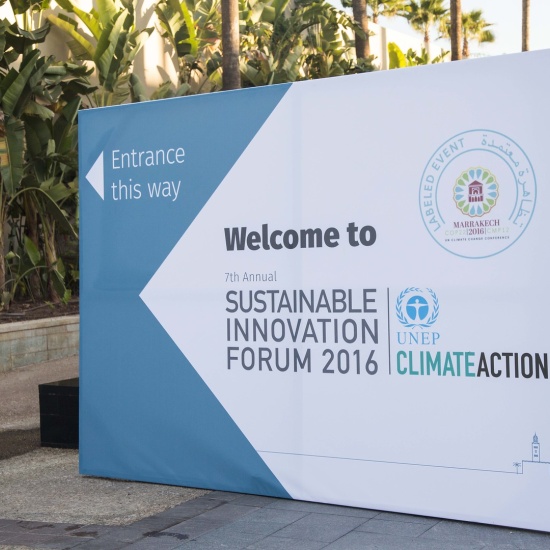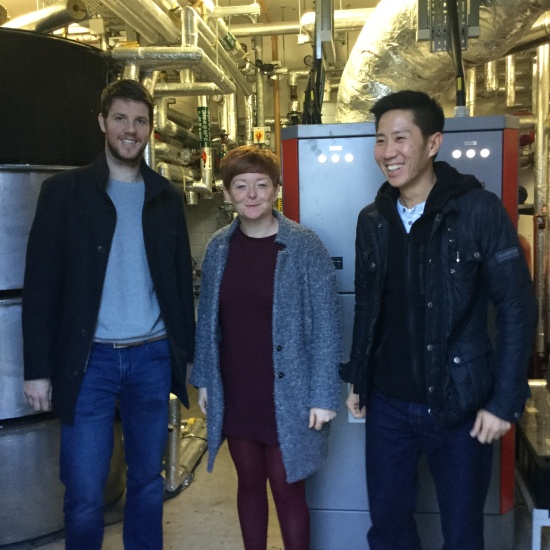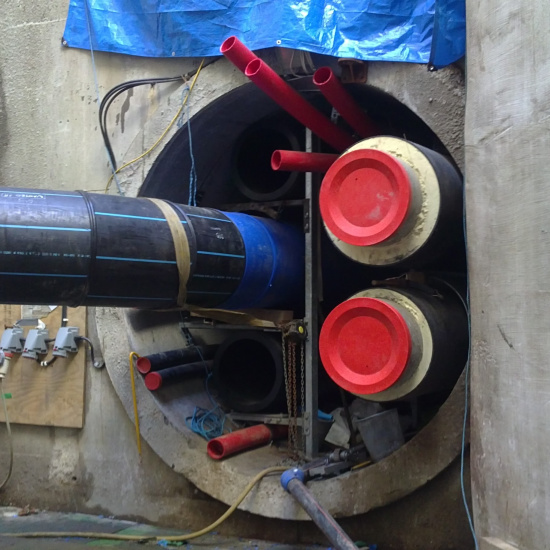"Stat Chat" - Ireland's energy prices
What can we learn from Ireland's latest energy price data? We look at Ireland's January to June 2022 electricity and gas prices to understand the price increases and how government supports are helping to moderate them
2022 has seen unprecedented increases in energy prices for homes and businesses, but also unprecedented commitments for price supports from Government. We look at Ireland's January to June 2022 electricity and gas prices to understand these increases and how supports are helping to moderate them
Every six months, SEAI surveys every natural gas and electricity supplier in the country, to satisfy reporting obligations set out by the European Price Regulation (EPR, EU 2016/1952). SEAI has just submitted Ireland's EPR survey data, spanning the half-year period of January to June 2022, to Eurostat. The purpose of this EPR survey is to synchronise energy price reporting across Europe, including industrial powerhouses, like Germany and France. EPR surveys doesn't always fit neatly around Ireland's relatively small services-based economy, but we can still extract useful insights from Ireland's data.
The EPR data is captured and expressed in "effective unit prices", which sum-up all energy costs passed to a consumer - standing charges, unit charges, taxes, and levies, etc. This effective unit price is a powerful "single figure" value that represents the true cost of a unit of energy. Effective unit pricing is ideally suited to capturing the impact of the €200 electricity account credits received by household electricity consumers in Ireland, between April and June 2022.
Business Electricity and Gas Prices
But first, let's look at the average effective unit price for business electricity in the first half of 2022. Ireland's business electricity prices are amongst the highest in Europe, typically ranking 4th to 6th highest compared to all other EU member states, depending on the consumption band. The very largest business consumers operate in the IG Band. They're huge, each consuming a minimum of 150,000 MWh of electricity, which is the equivalent electricity consumption of approximately 15,000 homes. Businesses in the IG band experienced a doubling of prices (+119%) compared to the same period last year, and a tripling of prices (+193%) compared to two years ago.
On the opposite end of the spectrum, we have the micro and small business operating in the IA Band, where electricity consumption is less than 20 MWh. These small businesses experienced price increases of "just" 20% in the January to June window, when compared to the same period last year. On average, summing over all consumption bands, the effective unit price for business electricity was 22.0 cents/kWh in January to June 2022. That's up 44% on the same period last year, and up by 64% on the same period two years ago.
Ireland's business electricity prices are amongst the highest in Europe, typically ranking 4th to 6th highest compared to all other EU member states.
Compared to other European countries, Ireland's business gas prices are mid-table, ranging from 15th to 24th highest, depending on the consumption band. The very largest business consumers operate in the I5 Band, where each consumes more than 1,000,000 GJ of gas, or the equivalent of 10,000 to 20,000 homes. These very large gas consumers experienced a tripling of prices (+202%) compared to the same period last year, while the small and medium businesses operating in the I1 band experienced price increases of 76%. Summing over all businesses - big and small - the average effective unit price for gas was 6.5 cents/kWh in January to June 2022. This has doubled (+99%) compared to the same period last year.
Compared to other European countries, Ireland's business gas prices are mid-table, ranging from 15th to 24th highest.
Household Electricity and Gas Prices
The most representative electricity consumption band for Irish households is the DD Band¸ which accounts for 44% of residential market share. The effective unit price of electricity in DD Band homes was 24.9 cents/kWh in January to June 2022, up 16% on the same period last year. This increase is less than we've heard reported in the media, and seen on our energy bills for three reasons:
- All households received a €200 electricity account credit that was applied to their bill from April to June, and effective unit prices capture the impact of this credit on reducing electricity costs.
- The rate of VAT due on household electricity and gas was reduced from 13.5% to 9% on the 1st of May 2022, and the effective unit prices also capture the impact of that reduction.
- Some of the largest price increases announced by energy suppliers only became effective in the last few months, and so are not captured in the January to June 2022 EPR data - they'll become apparent in the next round of price surveys.
A €200 account credit affects different households differently, and this can be used to deduce the impact of the account credits on household electricity prices. In broad strokes, €200 is a lot of money off a bill, when that bill is very low, and not a lot of money off a bill, when that bill is very high. We expected homes in the DE Band (consuming more than 15,000 kWh) to experience larger effective price increases than homes in the DA Band (consuming less than 1,000 kWh), and that's exactly what we saw. Analysis of this cross-band electricity price data shows that the €200 electricity credits and VAT reductions had a significant cushioning effect on household electricity prices. Without these price supports, we estimate that household electricity price increases would have been twice as high - approximately 30%, rather than the 16% experienced by DD Band homes.
With the benefit of account credits and VAT reductions, Ireland's household electricity prices fell relative to other EU member states in January to June 2022. Depending on the consumption band, Ireland's household electricity prices rank from 7th to 10th highest compared to other European countries, down on previous reporting periods, when we were typically 2nd to 4th highest.
Analysis of cross-band electricity price data shows that the €200 electricity credits and VAT reductions had a significant cushioning effect on household electricity prices.
Moving our focus to household gas consumption, we see that the effective unit price of the D2 Band was 6.5 cents/kWh in January to June 2022, up by 37% on the same period last year. The D2 Band is highly representative of Irish homes, and accounts for 93% of household gas consumption. Compared to other EU member states, the price of our D2 Band gas is again mid-table, ranking 12th highest in Europe.
Price Supports for Businesses and Households
It's clear that Irish homes and businesses are experiencing unprecedented energy price increases, but we've also seen the deployment of significant price supports by Government in 2022, and the commitment to offer very significant further price supports going forward into 2023.
As discussed, Irish households have already benefitted from VAT reductions and electricity account credits that have acted to partially offset price increases experienced in January to June 2022. It's clear that price increases are continuing into the second half of 2022. Budget 2023 announced that household electricity customers will get a further €600 in account credits to help reduce electricity bills, with three instalments of €200 in November 2022, January 2023 and March 2023. Additionally, the temporary reduction of VAT on electricity and gas, from 13.5% to 9% has been extended beyond its originally planned cut-off of 31 October 2022.
Budget 2023 also announced significant supports to help businesses of different sizes deal with rising energy costs, including the €1.25 billion Temporary Business Energy Support Scheme (TBESS). This scheme will provide qualifying businesses with a matching fund of up to 40% of the increase in electricity or gas bills, to a limit of €10,000 per month, where their average unit gas or electricity price has risen by over 50% compared to 2021. Additionally, the €200 million targeted Ukraine Enterprise Crisis Scheme includes a strand that will provide up to €2 million in grant aid for energy intensive companies impacted by the exceptionally severe increases in gas and electricity costs.




